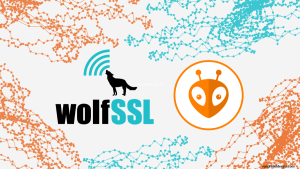Please join us for our informative webinar titled “Enhanced Security: SM Ciphers Integration with wolfSSL,” scheduled for May 23rd at 2 pm PT. This session, led by wolfSSL Senior Software Engineer Sean Parkinson, will explore the integration of SM Ciphers and their effective employment within the wolfSSL framework. Sean will provide in-depth insights into the ShangMi algorithms, highlighting their benefits and applications in various critical systems.
Watch the webinar here: Enhanced Security: SM Ciphers Integration with wolfSSL
As mandated by Chinese government regulations, the use of SM2, SM3, and SM4 is now required in critical systems such as automobiles, avionics, power systems, and communication networks. In response to these requirements and the needs of our multinational clients operating in China, we have integrated these algorithms into our wolfSSL products. Our latest release supports SM2, SM3, and SM4, and we plan to introduce the ZUC stream cipher later this year to fully comply with SM9 standards. We are also working towards achieving OSCCA certification, enhancing our appeal in the Chinese market.
For those considering wolfSSL for your security needs, here are 6 benefits of our ShangMi ciphers implementation:
- The SM Ciphers are fully supported in wolfSSL’s TLS 1.3 and DTLS 1.3 implementations.
- wolfSSH, wolfBoot and our other products will support ShangMi ciphers.
- ARM, Intel, and RiscV assembly is in the works for our SM implementations for maximum performance
- We support bare metal for SM2, SM3, and SM4.
- We have maximized performance and minimized size, so the ShangMi algorithms will work well for embedded systems use cases on a wide variety of microcontrollers (MCU’s). They will be available for all of the MCU silicon that we currently support, including STM32, NXP i.MX, RISC-V, Renesas RA, RX, and Synergy, Nordic NRF32, Microchip PIC32, Infineon Aurix, TI MSP, and many others.
- Our GPLv2 versions of the SM ciphers are available on GitHub and for download.
Commercial licenses are also available.
Don’t miss this opportunity to discover comprehensive security solutions and compliance strategies during our webinar on SM cipher implementations from wolfSSL. Watch now!
As always, the webinar will feature interactive Q&A sessions. If you have any questions about the ShangMi ciphers and algorithms, please contact us at facts@wolfSSL.com, or call us at +1 425 245 8247.
Download wolfSSL Now



